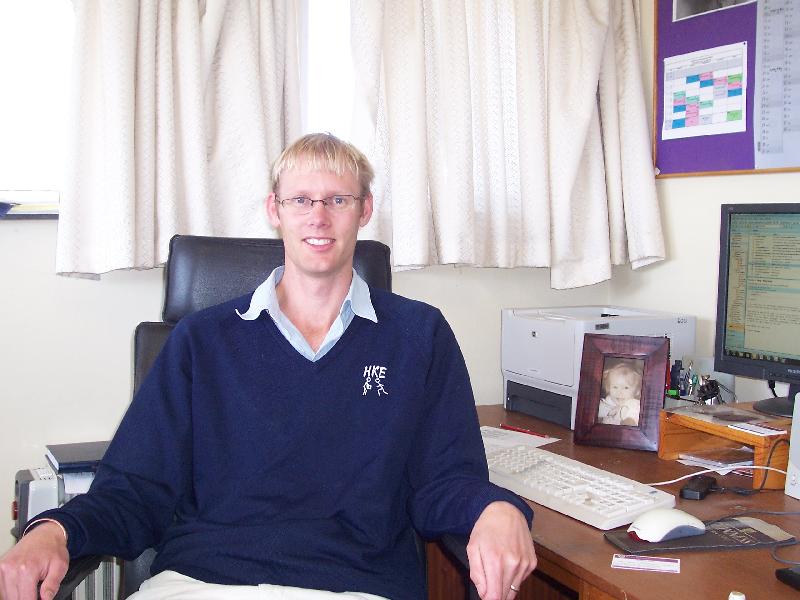
Andrew Todd, of the Department of Human Kinetics and Ergonomics (HKE), recently wrote an article for online news service Health24, which provided a tool for assessing the ergonomic status of your office environment. Todd, currently an HKE lecturer and Chairman of the Ergonomics Society of South Africa, started as a student at Rhodes University in 1996.
The Health24 article stems from a paper he published in the South African Journal of Ergonomics, looking at ways to optimise call-centre efficiency. At Health24's request, Todd reworked the academic paper to become an article on the six biggest mistakes made in the design of an office workspace.
For example, when it comes to office chairs, Todd points out that the key element is the degree of support that is provided to the body; if insufficient, the posture has to be maintained by muscular effort and can lead to unnecessary fatigue and discomfort. Most chairs are adjustable, but frequently users fail to make use of this facility. Additionally, most chairs are designed by taking into account the anthropometry (size and shape) of overseas populations. South Africa's population is characterised by many differing genotypes, some of which correspond to the overseas model, and some which do not.
The gist of the article, and the research, is that each human being is unique. There is no such thing as a 'one size fits all' office design and therefore each individual employee needs to have their workstation tailor-made to fit their needs. Research shows that properly designed work environments increase productivity by reducing what is called 'presenteeism' – the practice of being physically present at work, but not productive. One of the reasons for presenteeism is that people are not comfortable, and are therefore not able to concentrate.
A major issue with regard to this type of work is that here in South Africa we have no regulations relating to the protection of workers from ergonomic risk factors in an office environment. In fact, says Todd, South Africa lags behind quite severely. One of the problems inherent in this country is the amount of varying work environments which exist. Todd himself has worked with people from office environments, the military, and the forestry and automotive industries, among others. In fact, his MSc thesis dealt with physiological and psychophysical responses of infantry men and women marching under different combinations of speed, load and gradient.
Todd's main area of interest is the lower back, and while international regulations suggest that no more that 23 kilograms should be lifted, workers in South Africa, with its long history of regarding human capital as expendable, are often still lifting far more. His PhD thesis involves carrying out research into pushing and pulling factors influencing worker efficiency in South African industry.
It is only in the last thirty years or so that we have become aware that carrying heavy loads is bad for the human frame, and there has been a shift to pushing loads on a trolley. However, this has not led to a noticeable lessening in injuries, as excessive weights are often loaded up. Todd is looking at this from a biomechanical perspective; what is an acceptable load to put on a trolley? Are the injuries a result of strain or of fatigue? Additionally the South African situation has many other variables, such as workers often facing a long walk to and from their place of work and the HIV factor.
Back to the ergonomic needs of office workers and computer users, who are making up an increasingly large portion of the work force. Todd says one of the most important things an individual can do to help themselves be more productive in the work environment is to move around. Rest breaks should be taken on a short and frequent basis, and must incorporate actual movement. However well a chair is designed, and however well positioned a computer screen and keyboard may be, they can not compensate for the lack of movement involved in sitting at a desk for long periods of time.
Todd has always been happy to help those who express an interest to optimise their workstation. Every satisfied colleague can help spread the word on the importance of ergonomics in the working environment.
